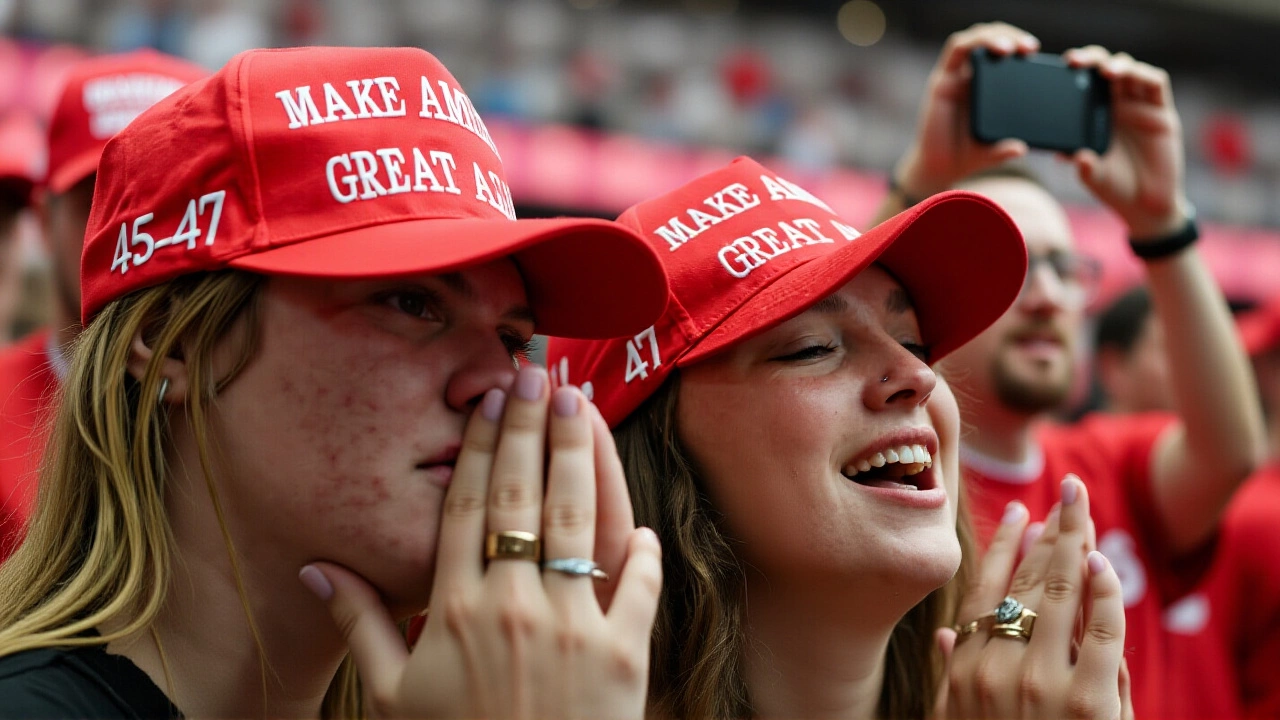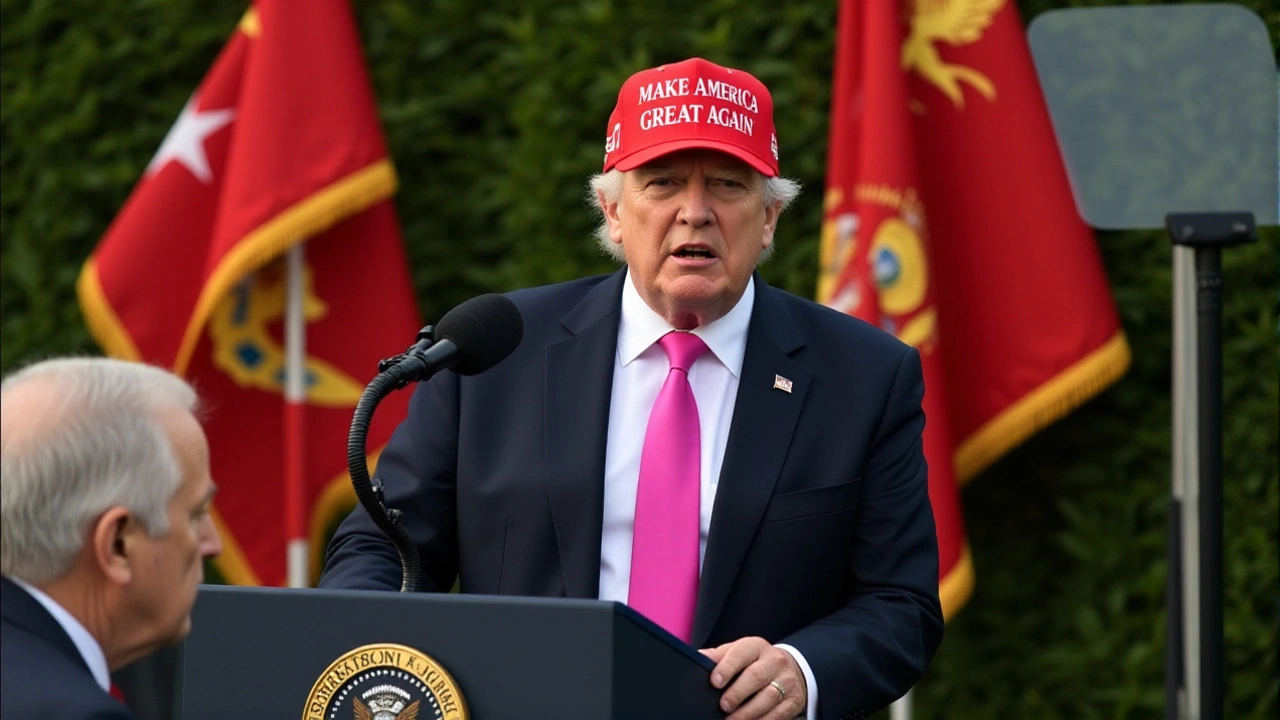When Zohran Mamdani, Assemblymember of the New York State Assembly clinched the Democratic nomination for New York City mayor on June 24, 2025, a wave of Republican outrage surged through Washington and the nation’s right‑wing media. Within days, prominent GOP figures were demanding his deportation and even threatening arrest, turning an already heated primary into a constitutional flashpoint.
Background: A Surprise Victory in the Primary
The New York City Mayoral Democratic PrimaryNew York City saw Mamdani, a Ugandan‑born Indian American who naturalized in 2018, defeat several older, better‑funded contenders. He won with 38.7% of the vote, a margin that surprised political analysts at the Brookings Institution and set the stage for a November showdown with former Mayor Eric Adams.
His victory was propelled by a grassroots campaign that highlighted affordable housing, aggressive climate action, and an 800% boost in funding for anti‑hate‑crime programs—a pledge he made alongside Comptroller Brad Lander on the “Late Show with Stephen Colbert.”
Republican Backlash and Legal Threats
Just a week later, Andy Ogles, a Republican congressman from Tennessee, sent a formal letter to Pam Bondi, the U.S. Attorney General, demanding a Department of Justice probe into Mamdani’s naturalization paperwork. Ogles claimed the mayoral hopeful “lied about terror support” on his 2018 application, citing verses from a rap song Mamdani recorded in 2014.
On the same day, White House Press Secretary Karoline Leavitt told reporters that the allegations “should be investigated,” according to The Guardian. The next day, former President Donald Trump stood outside the so‑called “Alligator Alcatraz” migrant detention center in Florida, announcing he would order Mamdani’s arrest if the candidate “tries to oppose anti‑immigration actions.”
Trump’s remarks were steeped in hyperbole: “We don’t need a communist in this country, but if we have one I’ll be watching over him very closely.” The former president’s comments sparked immediate condemnation from both parties.
Democratic and Young Republican Responses
Bronx Congressman Ritchie Torres dismissed the deportation calls as “politically motivated intimidation” on June 30, 2025. The following day, Congresswoman Nydia Velázquez labeled Ogles’s letter “disgraceful behavior from a Member of Congress” and “unhinged racism and xenophobia.”
The New York Young Republicans Club—formally the Young Republican National Federation of New York City—issued a June 28 statement demanding Mamdani’s removal under the Cold‑War‑era McCarran Internal Security Act. Club house chairwoman Elizabeth Ruh later told Salon.com that the call was “more tongue‑in‑cheek” and admitted she “doesn’t think he’s here illegally.” She also launched a broader, historically inaccurate attack on the Democratic Party, claiming it “has always been the party of the K‑KK and Jim Crow.”
Another club member, identified only as Berger, argued that “every naturalized citizen should be scrutinized for values that don’t comport with the interests of this country.” When pressed about the precedent of deporting a political opponent, Berger responded, “I don’t look at it as deporting anyone because they’re a political opponent. It’s a question of raising the bar for what it means to be a citizen.”

Legal and Constitutional Implications
At the heart of the controversy lies the rarely used provision that allows the federal government to strip citizenship for alleged fraud. The last high‑profile case involved Mahmoud Khalil, a green‑card holder detained in April 2024 during protests at Columbia University. While Khalil was never charged, the Trump administration attempted to deport him on the basis that his presence “harms U.S. foreign policy interests.”
Legal scholars at Columbia Law School note that forcing denaturalization on political grounds would likely violate the Fourteenth Amendment’s Equal Protection Clause and set a dangerous precedent for targeting dissenters. "If Congress or the DOJ were to move against Mamdani purely for his policy positions, we’d be witnessing the erosion of fundamental citizenship rights," warned Professor Lydia Chen.
Meanwhile, the Department of Justice, under Bondi’s leadership, has released no official comment, leaving the nation to wonder whether the letter will trigger a formal investigation or simply fade into the partisan noise.
What’s Next for the Mayoral Race?
Despite the furor, Mamdani has stayed quiet on the deportation chatter, focusing instead on outreach in Brooklyn and the Bronx. His campaign has pledged to increase anti‑hate‑crime funding by 800% and to launch a city‑wide apprenticeship program for 10,000 young New Yorkers.
Republican strategist Elise Stefanik told CNN on June 25 that Mamdani will be “the single most effective foil for Republicans nationally,” positioning the mayoral race as a proxy war for the 2026 gubernatorial battle in New York.
As early voting begins on October 15, the question on many voters’ minds is whether the GOP’s deportation narrative will sway moderate Democrats or simply galvanize Mamdani’s base. History suggests that attempts to weaponize citizenship for political gain often backfire, but the upcoming weeks will tell whether New York’s electorate is ready for another round of constitutional drama.

Key Facts
- June 24, 2025 – Zohran Mamdani wins NYC Democratic mayoral primary with 38.7%.
- July 1, 2025 – Rep. Andy Ogles letters AG Pam Bondi demanding DOJ investigation.
- July 2, 2025 – Donald Trump threatens arrest at Florida’s Alligator Alcatraz detention center.
- July 30, 2025 – NY Young Republicans Club initially calls for deportation under the McCarran Act.
- Congressional response – Ritchie Torres and Nydia Velázquez condemn deportation calls as xenophobic.
Frequently Asked Questions
What legal basis does the GOP claim for deporting Mamdani?
Republicans cite the McCarran Internal Security Act of 1950 and alleged fraud on Mamdani’s 2018 naturalization paperwork. Both statutes are rarely used and would require a DOJ investigation to prove misrepresentation, a high legal hurdle given the lack of concrete evidence.
How have Democratic leaders responded?
Congressmen Ritchie Torres and Nydia Velázquez publicly denounced the deportation threats as xenophobic and politically motivated, calling for the focus to remain on policy issues rather than personal attacks.
Could this set a precedent for future political deportations?
Legal experts warn that using denaturalization as a political weapon would undermine the Fourteenth Amendment’s protections and could open the door for similar actions against dissenting politicians, eroding core citizenship rights.
What impact might this drama have on the upcoming mayoral election?
The controversy could energize Mamdani’s progressive base while alienating moderate voters who view the deportation claims as extreme. Early polls show a narrowing gap, but the final outcome will hinge on voter perception of the candidates’ character and policy platforms.
Is there any precedent for revoking citizenship based on alleged political beliefs?
While the government can revoke citizenship for fraud or treason, there is no historical case of denaturalization solely on ideological grounds. The closest analogues involve security‑related misrepresentations, not policy disagreements.
